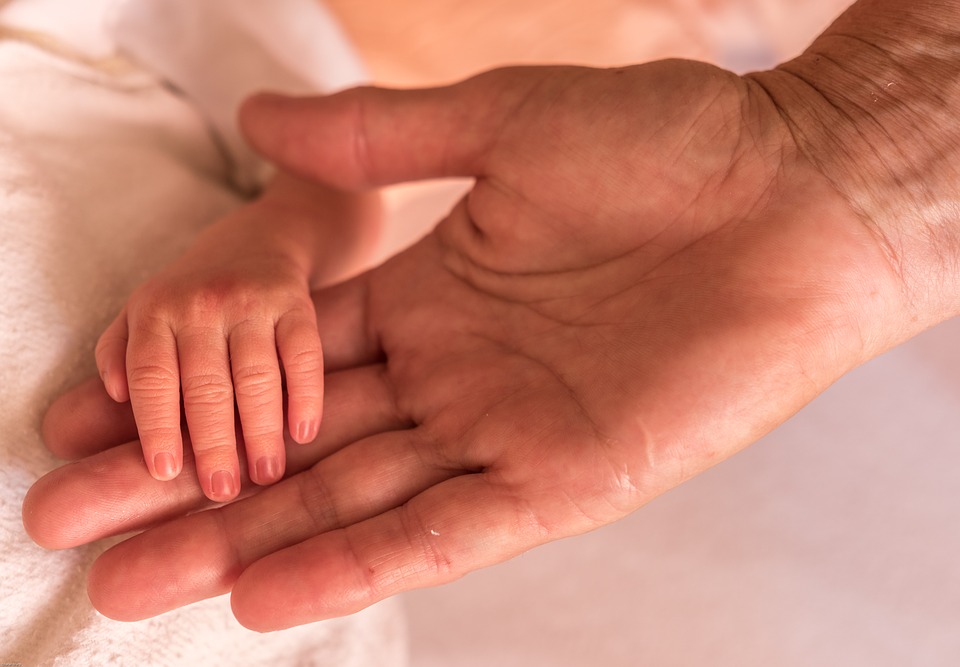It’s just the beginning of another day.
As you push the sand out of your eyes in the morning, the first thing you reach for is your phone. The blue notification light is flashing and a surge of dopamine floods your circuits. What could it be? Another update on Instagram? Maybe it’s breaking news from the latest election? Or perhaps a new viral video of a dog doing a backflip off a trampoline into a pool full of jello? Now, that would be exciting!
When you swipe the screen and the lights come on, you see not one notification, but many. Clicking and swiping, you go through each one. Another person liked your photo. Your stocks went down by $14. Your friend from high school just got engaged (for the second time this year). There is a viral video of a dog doing a backflip, but there’s no pool of jello. LAME!
As you swipe and click, more notifications pop up to replace the ones you’ve removed. Your eyes grow wide with excitement until a lone pop-up breaks you from the cycle. And it reads –
Alarm – Get Ready for Work
For a moment it doesn’t make sense. Has it been an hour already? Shaking your head, you get up from your bed and begin your day. With a groan, you realize that there’s still a lot that needs to get done before you head off to work: feed the dog and take him for a walk, take a shower, brush your teeth, make your bed, and prepare lunch for the day. An endless list of to-do’s that seem almost as long as the number of notifications on your phone.
As you pour your dog some kibble your pocket begins to vibrate. Another notification! It might be something important. Reaching inside and pulling out your phone, it slips from your hand and lands directly into your dog’s water bowl. Immediately dropping the bag of kibble on the floor (followed by a very happy pup rushing over to help clean it up), you let out an audible whimper as you quickly grab the soggy phone into your hands. You faintly remember hearing somewhere that you should immediately put wet electronics in a bag of rice. Rummaging through the cupboard, you quickly drop the phone into a box of Uncle Ben’s instant rice and take a moment to calm your racing heart.

You had everything on that phone. Pictures, phone numbers, text conversations, social media applications, grocery lists. The only thing that wasn’t on there was your dog, who’s now puking in the corner after eating the entire bag of kibble in 45 seconds flat. While your phone incubates in a bag of rice, you realize that the only thing you can do now is to wait. That means no phone for the rest of the day. Could this morning get any worse?
It appears, it can.
On your way to work, the normal route is blocked off due to construction. Without GPS, you get lost, making you late for work. While you’re at work, you miss an important meeting, all because you didn’t get a reminder on your phone. Your coworker asks why you didn’t respond to his text about lunch, so you tell him the situation that happened in the morning. Of course, he laughs hysterically. All throughout the day, your life has become worse because you didn’t have this small electronic device.
On the drive home, all you think about is if your phone is okay. Rushing into the apartment, you shoo away your excited dog to rush to that box of rice. Holding the power button, your heart races as you count in your head. 1, 2, 3….
Once you get to 10, you realize it’s no use. You take a moment to mourn before turning on your computer and typing in ‘phone repair shops’ into the search engine.
“ONE WEEK!?” you scream to yourself as you read through the company’s services. “One entire week to repair a phone with water damage? That’s ridiculous.” However, you know the only other alternative is to buy a brand new phone and you don’t have that kind of money. Begrudgingly, you drive down to the shop to hand over the dead device, with an expression that could only be interpreted as sadness and defeat.
You now have seven days without a smartphone. How will you survive?
Entitlement is a Drug
It’s interesting how we got to this place. Some time ago, I saw a group of parents at a restaurant at their own table, looking absolutely exhausted. They were talking about life, pushing back a few (or, many) drinks, and enjoying their food. At another table, I saw all of their kids. Each one had a tablet, with their eyes glued to the screen while nibbling on their chicken nuggets and french fries. No interaction, whatsoever.
And, of course, this may just be me being a bit harsh on the parents. Maybe they facilitate conversation and encourage the child to play with their peers all of the time! Just not when mommy and daddy need to fill up on a couple of vodka sours. But, another part of me knows that this is unlikely. Instead, it is likely that the child gets access to these devices whenever they want them.
The biggest problem is that electronics can be incredibly addicting. This addiction can become amplified for those who have had immediate access for most of their lives. Quite literally, electronic use is a drug. Flooding our brain with dopamine, our reward circuits light up with instant satisfaction from the videos we watch, the social media we consume, and the games we play. But the worst part? This behavior leads directly to feelings of entitlement, which, similar to the electronics, light up our brains like Christmas lights.
Let me ask you- have you ever taken a device from a toddler? If you haven’t, I would recommend you try it at least once in your lifetime. It’s both an interesting experiment and a great way to encourage the child’s parents to dropkick you right in the face. Don’t say I didn’t warn you! Essentially, you get a 52-year-old heroin addict who’s looking for their next fix inside of a 3-year-old’s body. The toddler will scream, cry, plead, bargain, and even guilt trip you into giving the tablet back. See me smashing my head against this wall? If you want it to stop, then HAND IT OVER! It’s both incredibly disheartening to see and unbelievably interesting at the same time.

Of course, I don’t want you to think I’m some Amish enthusiast who thinks all electronics were spawned by Satan himself! Quite the contrary. Just like adults, even the youngest kids can develop dependencies for sugary food, drinks, or even attention. However, these things are not a problem themselves. Instead, it’s when access is both freely available and provided, like a hedonic treadmill on steroids.
This creates entitlement.
With constant access to items that engage our dopamine receptors, we become dependent. When we become dependent at a young age, we then begin to expect these things in our daily lives. When we don’t get things we expect, we become entitled, seeping into other areas of our life; driving us to keep searching for that next dopamine hit.
“I should have gotten that promotion! My boss is an idiot.”
“What do you mean your machine is broken? I need an iced coffee right now!”
“You want me to wear a mask? I thought I lived in a free county!”
With entitlement, you have grown adults essentially acting like toddlers. Screaming, crying, pleading, bargaining, and even guilt-tripping you to give them what they want. But, even worse, they’ve had years of practice and are a LOT better than toddlers at getting their fix. The difference is that you can understand when a toddler acts this way, because, you know, they’re 3-years-old. They don’t have the life experience to understand their actions and are slaves to their dopamine hungry brains. We can cut them a little slack. But an adult? People who act this way either push others away because of their toxic and unsettling behaviors or they attract other entitled people like a bee to honey.
All of this sounds incredibly depressing, right? We all know entitled people in our life, have seen entitled people go viral on social media, and have moments of entitlement ourselves. It’s human nature. But just like ice cream, there’s a big difference between eating a scoop versus eating the entire carton. As you’re eating that milky, sugary goodness, it tastes amazing. But, once you finish, you likely feel bloated and a little disappointed in yourself.
So, now let’s get to the good stuff. How do we tackle entitlement?
Responsibilty: The Antithesis to Entitlement
When it comes to balancing our feelings of entitlement, the yin to our yang is responsibility. Essentially, responsibility is a direct antithesis to entitlement.
Responsibility is a moral, ethical, or social duty one has towards something or someone. It can be something that you have to do, like wash your car and take out the trash. Or it can be something that you want to do, like help an elderly person carry groceries or watch your son’s little league games. Although wanting to do activities you’re responsible for is likely preferable, in the end, both types of responsibility are effective at eating away at entitlement like a flesh-eating virus. The good kind, of course!
Similar to entitlement, we all have responsibilities in our daily lives that increase as we begin to get older. When you’re a toddler, your responsibility is to try not to run into the street and to eat your peas during dinner. Once we’re adults, these responsibilities become more robust, complex, and meaningful; where they basically become a grocery list of tasks needed to keep you and others safe. You have to get a job to pay the bills, so your family can eat and binge watch Netflix all day. You have to constantly watch your kids so they don’t stick their arms in the garbage disposal. You have to stop yourself from eating an entire cake so that you don’t get a stomach ache and develop health problems. It’s the American dream baby!
But, when I say ‘responsibility,’ what comes to mind? If you said ‘work,’ you’re right! If you said ‘Del Taco,’ then you’re wrong. But that does sound good right now! Hold on, I’ll be right back.
As I shove an entire burrito in my mouth, I want you to know that responsibility requires work. And not work as in putting time into something and getting a paycheck. I mean, time and energy; both of which are just as valuable resources as that crisp $100 bill you made from working a straight 8-hour shift at Del Taco. Thanks for the burrito, by the way; it was great!
Generally, this is why people avoid responsibility whenever possible. It’s hard. And generally, people avoid things that are hard. And just as I’ve said two other times in this article, people will scream, cry, plead, bargain, and even guilt trip others, just to avoid responsibility. That’s because people who avoid responsibility are acting entitled. Yin and yang, baby!
How to Make Responsibility Suck Less
Being responsible is going to suck sometimes. That’s just the way it is. Yeah, your baby just unloaded into its diaper for the seventh time today, but you have to clean it up. Yeah, your car broke down on the side of the freeway, but you have to call a tow truck and get it fixed. Yeah, you smell like the inside of a soggy shoe that’s been sitting on top of a barrel of Mackerel, but you need to go take a shower before you go on your date. Sorry. If you don’t like it, that’s cool too. But, now you’re being entitled.
“Why does this baby poop so much!? I’ve changed her six times today. Someone else needs to do this, because I’m done!”
“My car broke down again!? Time to have a tantrum in the middle of the road so everybody can see how angry I am!”
“Wow, that date went horrible. She wouldn’t even get within five feet of me. I knew it though…women only like jerks, not nice guys like me!”

Let me ask you, would you be friends with any of these people? Would you want to create a deep, emotional connection with any of the themes? Of course not. That’s because they suck much more than responsibility does. And there are some ways to make responsibility suck less, which is a great thing! Because, deep down, we all want to be more responsible. It’s a trait highly sought after by others. It cultivates respect, humility, and well-being in not only the relationships you form with others but for yourself as well.
As I mentioned earlier in this post, we either have responsibilities that we have to do or want to do. There, is the key to making responsibility suck less. Have as many responsibilities that you want to do as possible. It’s as simple as that.
Alright, don’t grab your pitchforks just yet. I understand that’s some intellectually lazy advice right there. “Just do more things you want, man. Then life will be ay okay!”
But, let’s think about this for a moment. Do we have control over the responsibilities we have in our life? For most of them, no. They are a necessity of the daily grind and means to an end. However, there is something we do have control over; the meaning we derive from our responsibilities and the values that drive us to fulfill them. Essentially, the why behind what we do.
“Well, you pooped again. It’s annoying, but let me change you because you are my child and I have unconditional love for you. Also, I don’t want you to develop a rash or be sitting in your own excrement.”
“My car broke down again? Time to call a repair truck. Next time, I’ll make sure to take it to the shop every couple months for maintenance. Then, this likely won’t happen again.”
“Well, that date didn’t go so well. It may be because I haven’t showered in 3 days. I need to get my act together so that I am much more presentable for future dates.”
When we can start to shift responsibilities that we have to do into want to do’s, they become less of a chore and much more fulfilling instead. If you really think about it, most of our responsibilities serve some greater purpose. They are part of a larger picture that, sometimes, we can’t see because we’re too busy being stuck in the black hole of entitlement. However, by taking a step back, we can start to see the meaning and value of our responsibilities in life.
A Quick Exercise
Take out a piece of paper, a word document, or a note application on your phone. List just 5 responsibilities you have to do for the day and space them out. They can be big (work an 8-hour day, grocery shopping for the family, etc.) or small (pick up the kids from school, wash the dishes, etc.), it doesn’t really matter. Then, underneath each of those responsibilities, list the value you derive from each of those tasks. Think deeply and list as many as you possibly can.
For example:
Writing this blog post
- Practice writing skills, so I can become a better writer.
- Provide a better use for my time instead of playing video games or watching videos.
- Use it as a creative outlet.
- Inform my readers of interesting ideas and concepts.
- Think deeply of ideas that I find myself thinking about on the surface.
- Provide a platform that can facilitate discussion for these ideas.
You can see that I listed not only the values and meanings for myself, but also for others also. This post takes a lot of time and energy. It’s not like I’m lying in my bed and the words magically float from my brain and onto the page (which would be pretty dope). It’s hard, but that’s okay. By being responsible and writing this post, I can fulfill my values and derive meaning from my actions. Instead, I could let entitlement take over and blame others for not understanding my ideas or taking the time to ask me about my thoughts. But, responsibility helps me from letting entitlement rear its ugly head.
What does your list look like? Are you having trouble finding value or meaning with the responsibilities you have? That’s okay! Take your time to think deeply about what you gain from the responsibilities in your life. If you truly find that most of the tasks you listed are meaningless, maybe it’s time to see if you can delegate them. If you hate doing laundry, you can pay someone to do it for you. If you can’t stand grocery shopping, get your food delivered. If you’re tired watching your kids, sell them on the black market and buy yourself a new yacht. The last one is a joke; don’t sell your kids! That’s because they may be the next LeBron James one day. Then you can buy two yachts!
In all seriousness, delegating responsibilities that don’t provide value and meaning allows you to pursue other responsibilities that do. But, there will also be times when you can’t delegate the task and you absolutely loath it. At that point, it may be best to try and take a new perspective on it. Going back to those darn kids, maybe you need to take them to soccer practice every Tuesday. You have a few ways of looking at it, going like this:
1. “I hate taking them to soccer practice. I always miss The Price is Right and Drew Carey’s wonderful voice. This blows.”
2. “It sucks that I miss The Price is Right and can’t hear Drew Carey’s delightful voice. But, I know this means a lot to my kids and it’s important for me to be a supportive parent.”
One is a rationale and responsible perspective to take on the situation. The other sure sounds a whole lot like entitlement. Without finding value and meaning in our everyday responsibilities, that’s exactly where our brain likes to go.
Back to the story…
After a week had passed, the absence of constant vibration in your pocket or the familiar ding of notifications felt strange. More than a handful of times, you even found yourself reaching into your pocket unconsciously to check on your stocks or the latest Facebook posts. However, as the week continued, it stopped feeling so weird. You spent a night with an old friend, gave your dog a bath, and even started a small garden…consisting of exactly three succulents. But, hey! At least it’s a start.
As you drive to the store and pick up your newly repaired phone from the counter, you have a strange sense of euphoria as you hold it in your hand. You turn on your phone and begin to see a river of notifications cascading down your screen in an endless blitzkrieg of words; your finger slowly reaches towards the screen, trembling with anticipation that’s been held back during the entire week.

“Sir?” the cashier says questioningly, breaking you from your trance. “Does everything look okay with your phone?”
You pause for a moment and begin to grin.. Opening up the settings, you turn your notifications on silent.
“It looks just fine. Thank you so much. Have a great day!”
The cashier smiles back and returns to his next duty. Similarly, you realize you have responsibilities to take care of as well and the notification can wait. As you place the phone in your pocket, you realize it’s very unlikely that you’re ever going to escape its clutches. Just like entitlement, it’s not something that can be completely avoided. But now, at least, you have a fighting chance.







